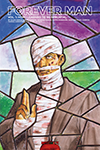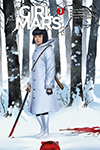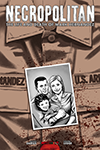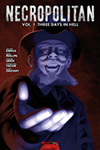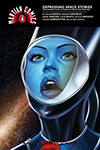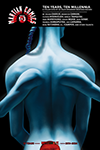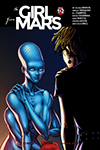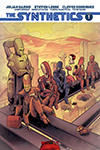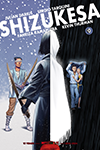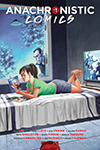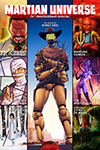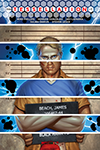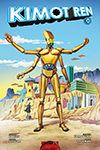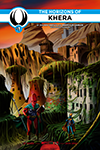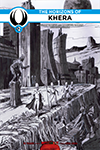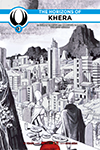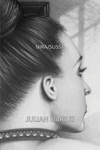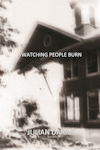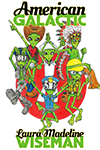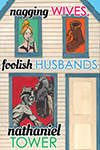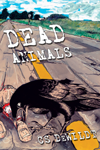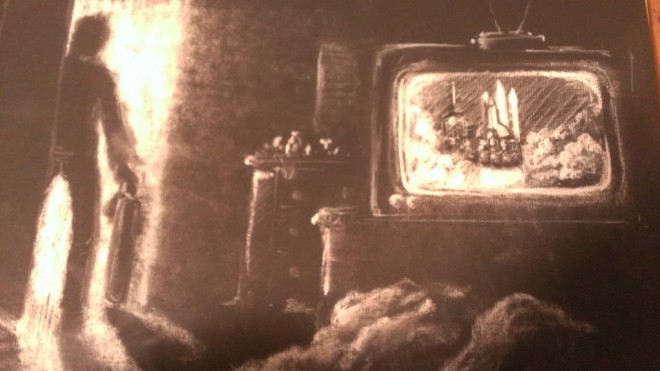 After Dad died and we moved in with Leon, everything went to shit. I remember the first night he did it to me. I was fourteen. Mom was–most likely passed out–downstairs on the sofa with the Home Shopping Network blaring. I lay in bed listening to the humming fish tank and staring–in the dark–at the fighting fish that swam alone in his designated part of the aquarium. I thought about freeing him just to see him tear the other fish to pieces and eat them.
After Dad died and we moved in with Leon, everything went to shit. I remember the first night he did it to me. I was fourteen. Mom was–most likely passed out–downstairs on the sofa with the Home Shopping Network blaring. I lay in bed listening to the humming fish tank and staring–in the dark–at the fighting fish that swam alone in his designated part of the aquarium. I thought about freeing him just to see him tear the other fish to pieces and eat them.
The door creaked open, and Leon’s hulking frame holding that laughing gas tank appeared as a silhouette in the threshold. The hall light came flooding in from behind him and stung my eyes. After closing the door, he placed the mask over my face and said, “Breathe.”
While he took out his tools–his pick and his drill–and put on his gloves, I clicked on the TV. NASA engineers were at work on the Challenger. The launch had been delayed again. The inside of my head felt fuzzy. I imagined bees buzzing around my brain, and as I lay back down on the pillow and stared at the screen, the images of the shuttle dropped in and out of focus.
At first everything felt tingly, like little needles pricking the soles of my feet. The sensation snaking slowly up through the back of my throat felt like warm static snapping through my veins–so lovely–like somebody kneading my body with a prickly pear. Then I felt nothing. No pain. No anxiety. No fear. Nothing. I fixed my gaze on the screen and there I was, boarding the Challenger. Just before I put on my space helmet, I waved goodbye. I was so happy. Then I heard the roar of the engines. Then I heard nothing.
* * *
The next day my mother took me to the psychiatrist. I’d never been to a psychiatrist before. You only went to see one if you were crazy. I didn’t feel crazy. I simply woke up with a bunch of burn marks. My mom kept saying, “You need to pull yourself together or Leon’s going to ask us to leave.”
“Good,” I said. “I don’t want to stay with him anymore. I’m tired of him beating on you, and I don’t like– ”
“He’s doing us a favor, William.” We were the only ones in the waiting room. My mother swallowed some pills and flipped up her big sunglasses so they rested on top of her head. She opened her compact and dabbed at her black eye with a tissue, winced. She lowered the sunglasses, put on her red lipstick. “I don’t want you making up stories about him. Just talk to the doctor about your feelings.”
I didn’t want to talk to anybody, especially this guy. The doctor was old—maybe in his fifties—and he wore a tie with Big Bird on it. I guess this was supposed to show the world that he knew how to talk to kids. I wasn’t a kid. I was fourteen, and I was tired of people talking down to me.
I didn’t like being in his office with the door shut. A painting of a sad clown smoking a cigar hung on the wall. Beanbag chairs sat on the floor along with a big box of naked dolls in a Tupperware container. He had one of those stupid clocks with the cat and the googly eyes hanging by the window, and every few minutes he’d check it.
I didn’t like the way this doctor was looking at me through his coke-bottle glasses. He was bald in front but had a ponytail stretching halfway down his back. He wore a hoop earring and Birkenstocks over white socks. The doctor sat across from me, his weirdo sandals resting on the coffee table between us.
I sat on the green sofa and told the doctor how my real father had died three months ago. “He pulled off the highway–onto the shoulder to help this old guy change a flat–and a semi hit him. I watched it happen.”
“That must have been awful,” the doctor said. From under the door, an envelope slid into the room and glided across the floor. The doctor walked over and picked it up. “Excuse me, William,” he said. He pulled out a piece of paper and read it.
“The real problem is my mom’s new boyfriend.”
“Tell me about him.” He didn’t look at me and kept reading.
“We just moved in with him. This dentist. He’s really scary.”
“How so?”
“I’m afraid to say.”
The doctor pulled a pen out of his shirt pocket, scribbled a response on the piece of paper, and stuck it in the envelope. He slipped it back under the door. “Sorry,” he said. “I don’t usually do this during sessions, but this is a special case, an emergency. Very delicate.” He grinned.
I looked out the window. The sky was overcast and dim. A row of black birds perched on a telephone wire. One bird flew away. For all I knew, the shrink could have been passing notes to my mother out in the waiting area. She liked doctors, and I’d noticed how she’d shot a shifty wink at this troll when they met.
“Aside from your father and Leo, is anything else troubling you?”
“Leon.”
“Right.”
I wanted to tell him about Leon’s late night visits after my mother had passed out from the pills and the highballs, but Leon said he’d kill Mother if I ever told anyone. He said he’d also kill me. “Everything else is just fine,” I said.
The doctor’s eyes followed the burns on my arm. “How did you get those?”
“An accident.”
“Quite a few, I’d say.” It looked like he was counting them. I wanted to explain the whole thing to him, but he probably wouldn’t believe me–just like my mother.
“Do you ever think about hurting yourself?”
“No.” I didn’t want to hurt myself. Other people were doing that for me. I only wanted to get away from the hurt. I didn’t understand why this was such an amazing mystery, but I couldn’t say it because if I did, Dr. Fuckface wasn’t going to give me any pills and that’s all I wanted–to get back on that goddamned spaceship.
“What about hurting other people? Do you ever think about doing that?”
I imagined choking the doctor with that Big Bird tie. “Never,” I said. Outside the window all the black birds had flown away.
The envelope came sliding into the room again. The doctor picked it up and took out a syringe.
He walked over to me and said, “Hold still.”
Then my mother came into the room, and it looked like she was taking off her clothes. “Is he asleep?” I thought I heard her say.
* * *
When I couldn’t filch pills from my mother–and believe me, she would hide those fuckers–I’d pop into Woolworth’s to steal Robitussin. On this day in January–not too long after my visit to the psychiatrist–I snuck open a box, removed the bottle, and put the empty box back on the shelf. I slid the bottle in my Trapper Keeper, tucking it under my arm. In the toy aisle I saw a model of a space shuttle–the Challenger. As I picked up the spaceship box, the Trapper Keeper slid out from under my arm and the bottle crashed to the floor. The glass shattered and syrup oozed over the linoleum. My rocket fuel. Gone. I glanced down the aisle. Wally Bender, the fat store manager, was running toward me, panting.
“Come with me,” he said after catching his breath. His nametag looked like it had some type of brown gooey food or sauce smudged on it. Wally was short and tubby, and he had large sweat stains under his arms even though it was the middle of winter. “Let’s walk to my office,” he said.
“What’s going on?”
He pointed to a security camera. “Maybe we should discuss this with Leon. I’d call your mom, but she’s probably bulldozed by now. Guess it runs in the family.”
I shot a glance down the toy aisle and visualized my escape route, but Mr. Bender knew where I lived. Who knows how many prescriptions they’d filled for my mother. I followed Mr. Bender into his office. He motioned for me to sit and closed the door. A woman’s pink, one-piece swimsuit hung on a hook. The room felt humid and smelled of mold–that oozing, green kind that grows in showers. Mr. Bender walked to the other side of his desk. He sat facing me.
“I hate thieves,” he said. “And I hate druggies.” Papers, a calculator, and balled-up tissues littered his desk. A half-eaten tuna sandwich sat lopsided on a plastic Wonder Woman plate next to a can of Orange Crush.
“I’m sorry, Mr. Bender.” But I was only sorry I hadn’t drunk that Robitussin before old tubs nabbed me.
“Do you know what it feels like to have someone steal from you?” He bit into the sandwich, chewed with his mouth open.
“No, sir.”
“It’s humiliating.” He leaned in close so I could smell the tuna on his breath. “Do you have any idea what it’s like to be humiliated?”
“Please don’t call Leon. I’ll pay for what I took.”
“How much money do you have?” The manager gobbled up the rest of the sandwich. A clump of mayonnaise stuck in the corner of his mouth.
“Nothing with me, but I can come back.”
He laughed.
“I’m begging you. Please. I’ll work it off. I’ll clean the bathrooms. Whatever. Just don’t call Leon.”
Mr. Bender nodded to the swimsuit. “Would you put that on and rub my feet?” It looked like he was taking off his penny loafers.
“What?” I turned around and looked at the pink one-piece. I turned back to Mr. Bender, who was now removing his socks. Disgusting.
“Foot massage.” He smiled as he leaned back in his chair and placed his hairy feet on the desk. His toes were pudgy, the toenails way too long and caked with black fibers from his socks.
“Maybe you should call Leon.”
Mr. Bender reached for the phone. His left thumb was bulbous at the fingertip. The nail was short and wide, umbrella shaped. It didn’t look like his right thumb, which looked normal, like his other fingers.
What would Leon do to me? A foot massage was getting off easy. Swimsuit or no swimsuit. “Wait,” I said.
Mr. Bender hung up, slid open his desk drawer, and pulled out a bottle of Robitussin with codeine. “You can drink this first.” He twisted off the cap and pushed the syrup across the desk toward me.
The bottle felt heavy. I tilted it back and stared at the security monitors. I watched people who probably lived in normal families placing items into their carts to take back to their happy homes. I finished the Robitussin and shut my eyes for a few seconds. The spacecraft’s rocket engines thundered in my head. The countdown had begun.
* * *
It was almost dinnertime when I made it back to Leon’s. I could hear Leon and my mother fighting. I quietly shut the front door and tried to make it to my bedroom unnoticed, tiptoeing down the hallway.
“William?” Leon said from the kitchen where he and my mother were arguing and crashing about.
“What is it?” I said.
“I got a call from Mr. Bender. At Woolworth’s. I’d like to see you in my office.”
“Okay,” I said, but instead, I walked down to the basement. I picked up a jug of paint thinner and drank it. I sat huddled on the cold concrete floor and listened to a voice on the radio saying the Challenger’s take off would be delayed again. The new launch date had been set for Tuesday.
* * *
Latex fingers fed a tube through my nose, and I gagged and choked when it slid down my throat. I tried to kick loose from the restraints, but my ankles were strapped to the gurney bars. Someone pulled the waist of my pants below the hip. “Little sting here,” a voice said, but I felt nothing. A bright light–like the one in Leon’s office above his dental chair–circled around my head. The space shuttle was, once again, preparing for lift off, and I was happy to be on board.
* * *
When I came out of surgery, I was admitted to the psych ward where they said I was to remain for the next seventy-two hours on, what they called, an involuntary hold. A small surveillance camera hung just beneath the ceiling. They juiced me up on all kinds of pills, and I spent most of my time in the lounge where I watched Tom and Jerry reruns.
Thick glass fortified the nurses’ station. They had to punch in a code to enter. Fish inside a gigantic tank–almost like the tank in my bedroom at Leon’s. Patients wore green bracelets, white terry cloth hospital pajamas, and socks with rubber tread on the soles.
“I’m Doctor Monroe,” the doctor said when I met him in his office. He was completely bald. Not a single hair on his face. No eyebrows. No eyelashes. No nose hairs. None on his hands. A space alien.
I tried to speak but couldn’t. I pointed to my throat, shrugged.
“The chemicals you ingested burned your tongue and esophagus,” the doctor said. “It’s likely that later you’ll regain the ability to speak, but we don’t know when that’ll be.” He flipped through my medical chart.
Someone was tapping me on the shoulder. I turned and saw a red-haired curvy nurse. She extended a notepad with a short dull pencil like you’d find in a library or on a golf course. “In the meantime, you can communicate with these,” she said, and winked at me.
“Thanks,” I wrote.
She patted the top of my head. “You let us know if there’s anything you need.”
I wrote, “OK,” and turned back to the alien.
“The chemicals caused some damage to your free nerve endings, so they’re mostly dead.”
I drew a question mark on my pad.
“Until your nerves repair themselves, you won’t be able to feel anything. You’ll stay with us until you’re stable, which is going to require lots of rest, but don’t worry about that. The medication’s going to help.” The alien was going to help me get back onto the spaceship.
Later that day, my mother and Leon came by for a visit. The curvy nurse with the red hair said it was okay for us to talk in the dining room. They sat next to each other and faced me. My mother wore her big sunglasses, and her left arm hung limp in a sling. Raised red welts and fingernail scratch marks stretched across Leon’s neck.
“Your mother had a little fall,” Leon said. He smiled.
“That’s too bad,” I wrote on the notepad.
“We’re not upset about the cough syrup.” My mother reached across the table and tried to take hold of my hand.
I pulled it away and wrote, “That’s nice.”
“We’re really worried about you,” my mother said from behind her sunglasses.
“Are you?” I wrote, and smiled at Leon.
Leon smiled back, but it was a hateful smile. It was the smile he flashed in public when my mother or I did something to embarrass him. It was the smile that said, “Wait until we get home,” but for the first time in my life, I wasn’t afraid of Leon. That was because I knew I wasn’t going home. I was going somewhere better. Tomorrow would be Tuesday, and I planned to be going into outer space on the Challenger.
I saw my toothy grin in the reflection of the sunglasses covering my mother’s banged-up face. I walked out of the dining room and into the lounge to join the other patients who were watching Tom and Jerry. Tom played the stand up bass and sang, “Is you is, or is you ain’t my baby…” to the pretty, white cat.
I noticed the scowling little Goth-girl, sat down beside her, and stared at the cartoon. I didn’t even see my mother or Leon walk off the psych ward.
* * *
The talking circle met early the next day because everyone on the ward wanted to watch the Challenger lift off. It was scheduled to launch at 11:38 that morning, and the therapist agreed to have the session wrapped up by 11:00 so we could all gather in the lounge to witness the historic event.
I thought the talking circle was silly—especially for me—because I couldn’t talk. The patients took themselves way too seriously. Why would anyone want to talk about horrible personal experiences? It made much more sense to find ways to forget them.
The Goth-girl’s name was Joy, and she sat next to me. She said she was so mad at this boy in the high school drama club because he wouldn’t say he loved her after they made it around the bases. She broke into his house, stuffed his cat into a pillowcase, and bashed it against the garage walls until the body went limp.
The therapist cringed.
I thought about lunch. It was Tuesday, and I couldn’t remember if the menu I read that morning said meatloaf or fried chicken.
“Then I got an ax and was going to split his head with it, but the boy’s parents stopped me,” Joy said.
The therapist was speaking, but I wasn’t listening.
A fly was trapped at the window. It buzzed and slammed against the glass in its effort to escape. It fluttered and made one final attempt, before it plummeted onto the sill where it lay silent and dead.
I noticed Joy had been watching me. I winked at her and thought I saw her mouth the words, “I love you.”
I blushed and thought I felt a slight erection. Impossible.
She picked up my pencil and wrote, “We should sit together and watch the Challenger take off.”
I drew a smiley face.
When the talking circle was finished, I took a seat in the back row of the plastic chairs that faced the TV where the Challenger was preparing for its launch. Engines flared and boomed. This time it was really happening.
Joy grabbed my notepad. She took my pencil. “Do you love me? Circle Y or N.” She wrote and handed back the pencil.
I circled “N.”
She climbed onto my lap, so she was straddling me, and she kissed me on the mouth. She snatched my pencil and rammed it into the side of my neck. My mouth flew open to scream, but nothing came out. All eyes were fixed on the television screen, and nobody noticed Joy clutching my throat and squeezing it so I couldn’t breathe. I flailed and kicked, but I couldn’t throw her. I heard the countdown coming from the TV, and then all the patients in the lounge joined in.
“10-9-8-7-6-5-4-3-2-1.”
I watched the Challenger blast into the clear blue sky, and I knew–in that moment–that everything was going to be okay.
###


